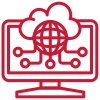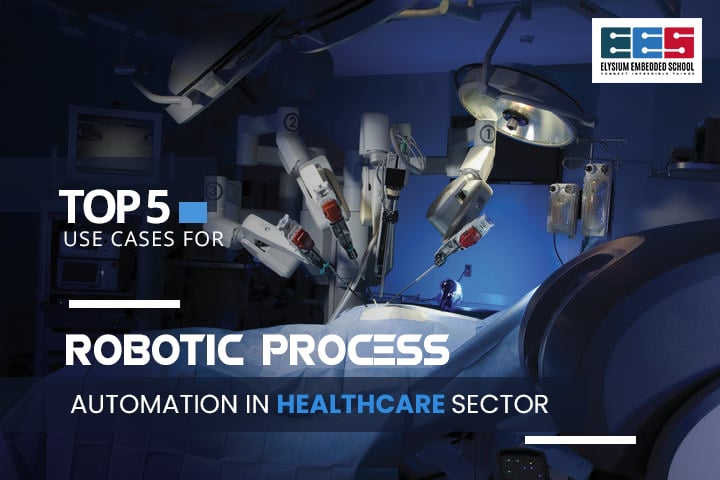
Learn Arduino Microcontroller Course
November 28, 2019
Ideal Way to Learn Raspberry Pi Training Course
December 5, 2019Use Cases of RPA in Healthcare: Robotic process automation is a technology that can serve healthcare sectors with several use-cases which includes clinical documentation and data transfer. However, this emerging technology helps to make the waves in this sector and allows share holders to refine health quality.
Robotic Process Automation
It's a technology which helps to use software robots or artificial intelligence to automate the tasks and get them done, just like human beings do. This kind of robot can interpret, generate responses and also communicate with other systems. It is used to perform repetitive tasks. Further, it deducts the cost and effort of humans that goes into performing repetitive tasks.
As a matter of fact, software robots can act like the most of the tasks that humans do. Since, they can be integrated with other systems to move files, folders, and copy-paste data, scrape browsers, fill in forms, log in to applications, and extract data, etc.
5 Use Cases of Robotic Process Automation in Healthcare
- Patient Appointment Scheduling
- Insurance Claim Management
- Account Management
- Enhance Treatment Cycles
- Healthcare Workflow Management
Patient Appointment Scheduling
In that case, your hospital has an appointment booking portal which helps to schedule the hundreds of doctor-patient meetings daily. If any of the doctors fail to make it for the meeting, the hospital staffs have to manually inform the patients about the doctor’s unavailability. It does not seem feasible practically. These are some complicated challenges can be resolved using RPA . In fact, the RPA Certification when integrated with the appointment booking portal can extract patient-doctor data and the appointment set between them. Based on any updates about the doctor's availability, the patients can be informed about it.
>Management of Insurance Claim
Health Insurance claim management which helps to includes a number of processes. In fact, gathering insurer's data, determining and processing it is a time taking process and also error-occur. Automating the insurance claim management using robotic process automation that helps to make sure all the compliances are met while processing the claim and is done faster than humans do. Furthermore, automation here ascertains that complex insurance claims handled with efficiency.
Account Management
Healthcare sectors can deal with multiple patients’ accounts at a time. However, it includes tests, prescriptions, doctor fees and other facilitates provided. At the same time, calculating them in manually and managing these accounts may occur in some errors. Using this software, it can help the healthcare sector in calculating a patient's bill by taking data from several departments and also send a notification to the patient. Overall, automating the account settlement with RPA can deduct the payment delays and inaccuracies in calculating the bill amount.
Enhance Treatment Cycles
Every day, the healthcare industry can gather plenty amount of data. In fact, the patient's personal information, treatment is given to them and so on is a set of details that gets stored in a database. In fact, extracting and analyzing these important data can helps the healthcare field in understanding the treatment plan works well for their patients which disease has been diagnosed, what medicines have been useful for patients, etc. Therefore, it helps to improve the patient’s care services.
Healthcare Workflow Management
When running a healthcare institution that includes many workflows such as managing healthcare, utilization management, remote monitoring, and also population wellness, etc. However, these are the workflows that contain routine task which is very important for healthcare providers and patients. In general, workflows are managed manually and it can be an inefficient approach. The usage of robotics courses process automation can help to consolidate the various workflows. As well as, automating the workflows can improve the efficiency. With the help of this technology, healthcare professionals can spend the majority of their time on patient care and other critical activities.










